From Slum to Suburb
In a large-scale low-cost housing program, Guyana's government wants to tackle its country's housing crisis by upgrading its informal settlements and participatory resettlement of slum dwellers. The Participatory Slum Upgrading Program (PSUP) of UN-Habitat is to support them in their efforts.
by Kirsten Milhahn (Text and Photos).
As the white government jeep turns into the gate of the newly built housing estate with the promising name Prospect, Tiffany Salmon becomes restless in the back of the car. Nervously, she is rubbing the tip of her right thumb against the palm of her left hand. She can hardly wait to see her new home with the small plot of land she will be moving into with her son in a couple of weeks.
Tiffany Salmon, 26, single mother of a nine years old son, lives on Broad Street, one of numerous informal settlements that have sprung up across Guyanas’ capital Georgetown, where the government has struggled to tackle a chronic housing crisis. An ambitious relocation and upgrading program, initiated by the Ministry of Communities, Central Housing and Planning Authorities and Food for the Poor in Georgetown, should address the situation. Therefore, the Guyanese government has brought UN-Habitat on board. The Participatory Slum Upgrading Program (PSUP) is supposed to help to develop a national strategy for informal settlements upgrading that would provide guidance and strategic direction on how the government will address this topic in Guyana holistically.
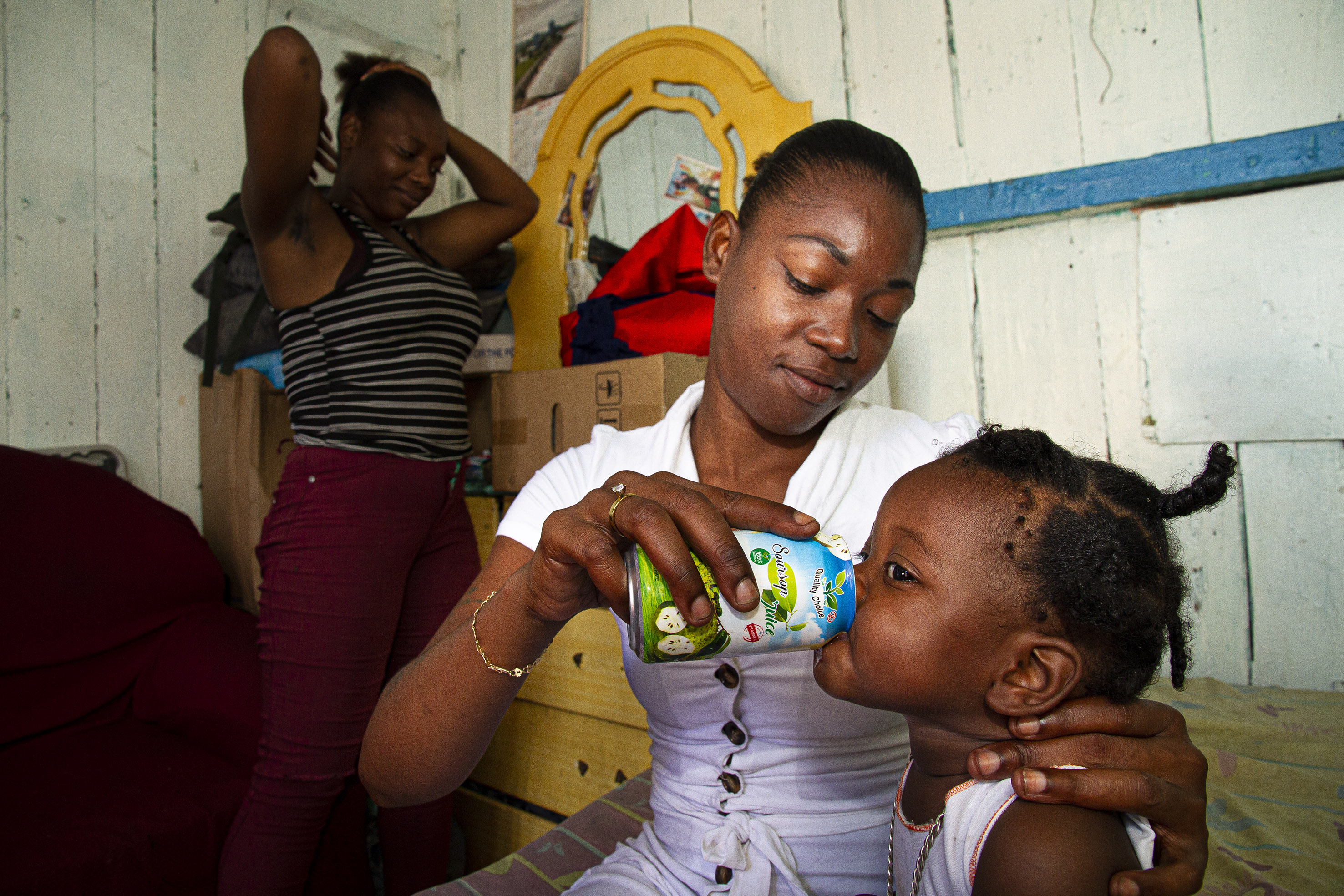
Tiffany Salmon, 26, from Broad Street slum, is one of the first who will be relocated to a newly built settlement outside of the city of Georgetown
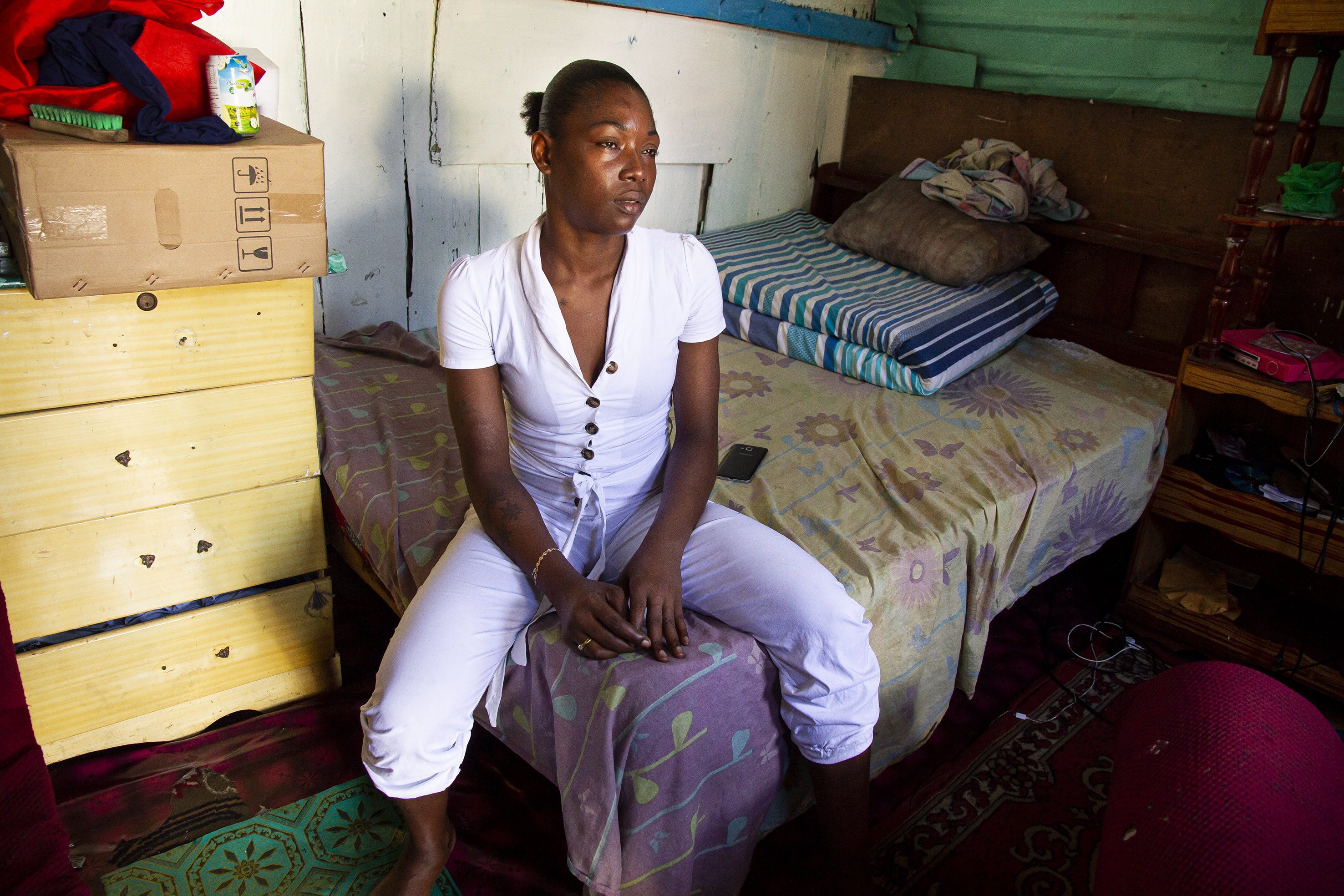
The young woman lives together with mother and sister in a small wooden hut on Broad Street

Prospect is part of a relocation project of the Guyanese government, which addresses slum dwellers and families from low-income backgrounds
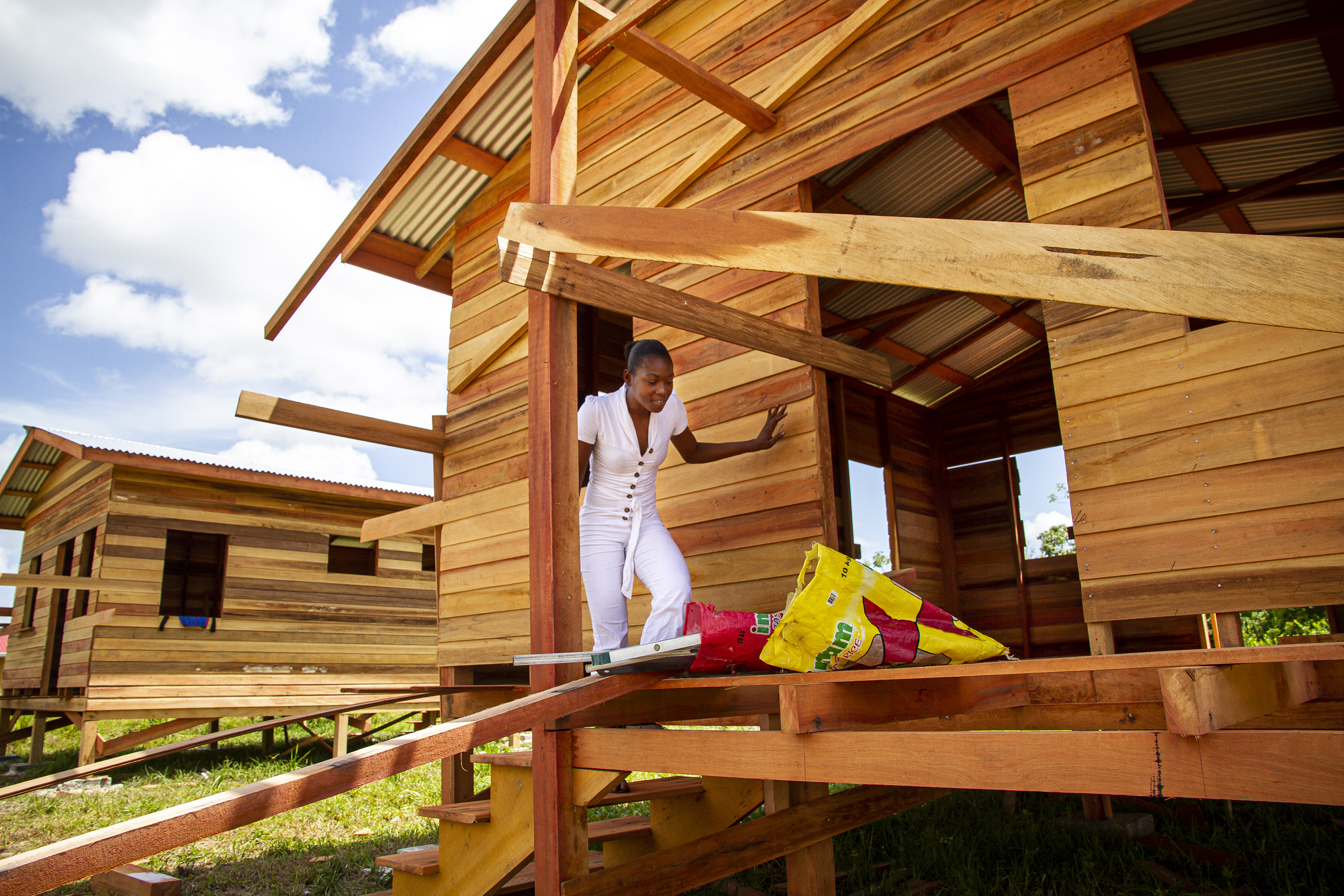
Through the relocation project, Tiffany receives a wooden house with garden, which becomes her property
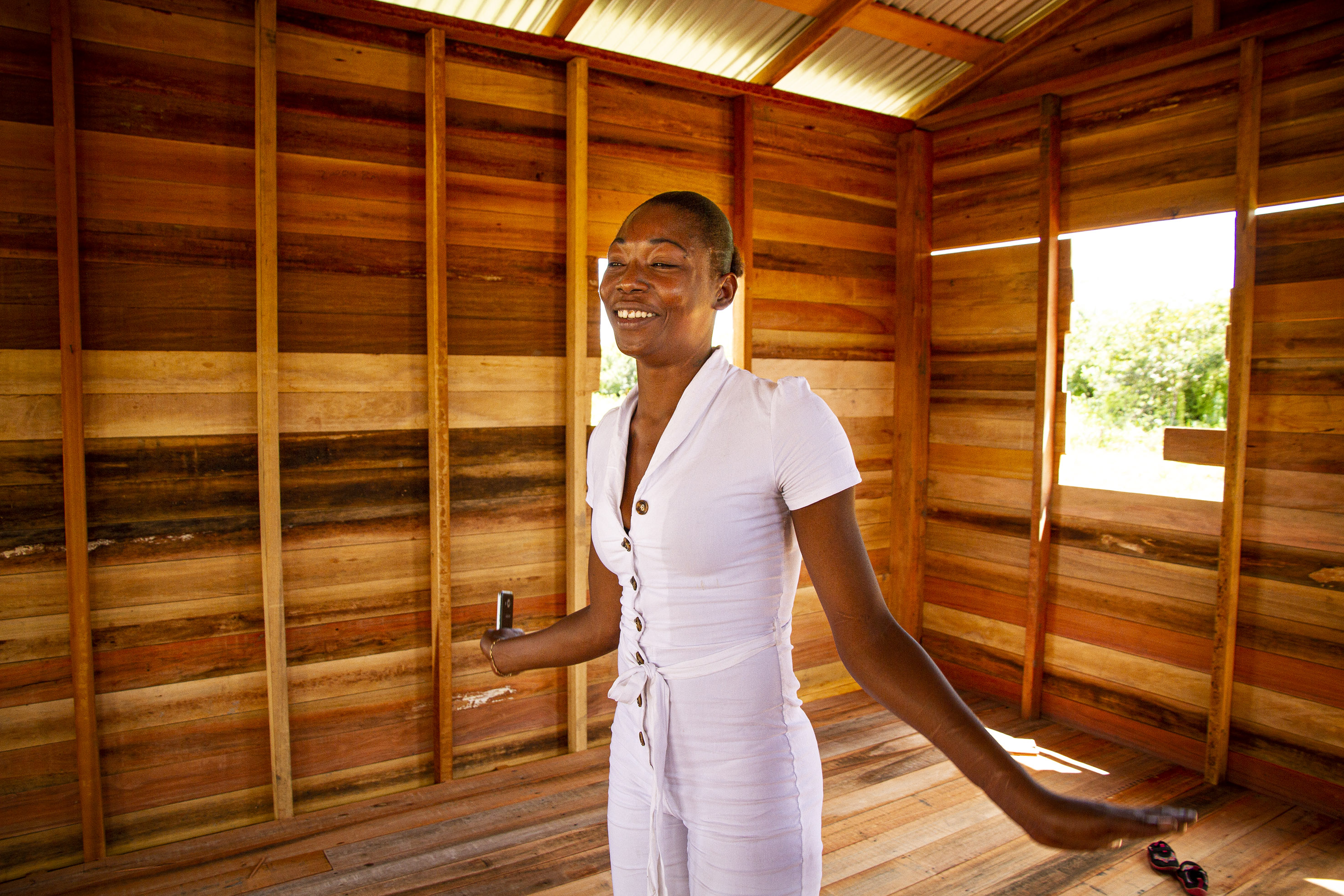
And she cannot believe, that this will be her future home

20 wooden houses with plots will be given to families from the slums
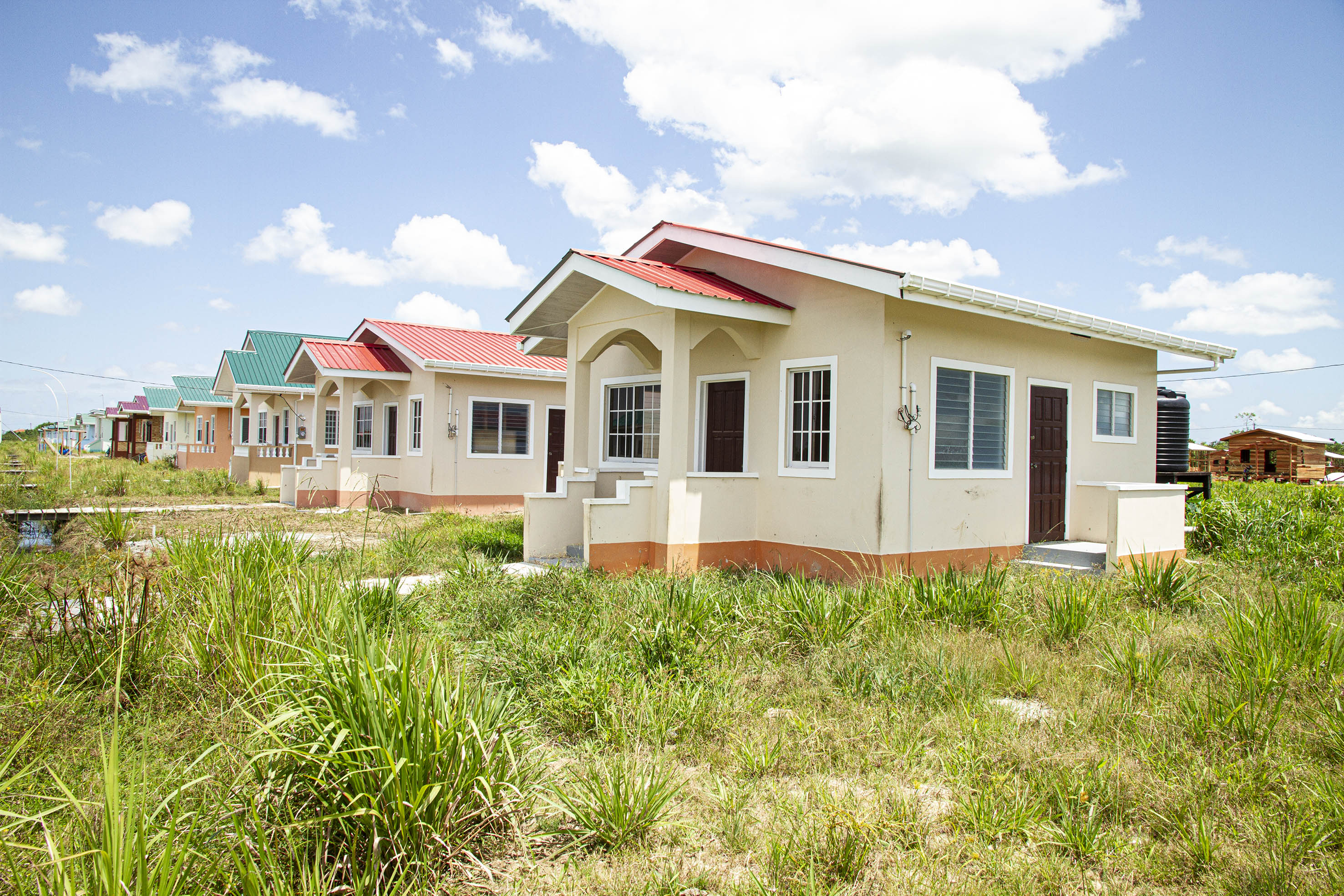
Prospect also includes small modern stone houses, which are sold at subsidized prices to low income families
Thousands of people in the informal settlements of Georgetown live in extremely poor conditions. Tiffany Salmon is one of them. With her mother and sister, she lives in a deteriorated wooden hut on Broad Street in a single room that is less than 10 square metres in size. Broad Street lacks, like many of the informal settlements in Georgetown, basic amenities such as toilets, sanitation facilities and clean drinking water. The small aisles between the huts are flooded in the rainy season. Mosquitoes, rats, drugs and security issues make peoples life miserable. But this will soon change. Two dozen families with small children will make the start. By way of a lottery these families received a wooden house in Prospect, a settlement, newly built by the government in the suburbs of Georgetown to try a new start in life - in a new environment, in a new, more peaceful, more heterogeneous community, which should provide social control and security. Prospect comprises of 20 wooden houses, all equipped with two rooms, bathroom with toilet, running water, electricity and a small garden behind the house. In addition to the wooden houses, there are about two dozen pastel-colored stone houses for sale at subsidized prices for low-income families.
The Guyanese government relies on both the relocation of people in areas which cannot be upgraded such as Broad Street as well as on the upgrading of existing, grown informal settlements, such as large parts of Sophia. The settlement in the coastal area of Georgetown is a former sugar cane plantation were workers came to live decades ago and in which about 24000 people live nowadays. Although the majority of its settlers have replaced their former wooden huts with more hardy structures, there is still a striking number of squatters, who mainly settle illegally along the embankments of the water channels under very poor living conditions. To include all people of Sophia into the city’s policy and make it a proper settlement, the government started upgrading the area. The sweeping changes saw roads and drainages being built, bridges connecting the parcels of land and providing access to neighborhoods were also constructed as well as the residents being issues with title deeds to their pieces of land. Soon, Sophia should look like other, better neighborhoods of the city, at least this is the government's plan, which also includes other urban areas of the country.
A large number of people in Guyana live in poverty. “The government is ambitious to eliminate as many informal settlements as possible incrementally in the long term within the country and within Georgetown”, says Gladwin Charles, Director of the Community Department from the Ministry of Communities Central Housing and Planning Authorities. The municipality for instance wants to extend its relocation projects to all people in all areas of the capital, which are not upgradable anymore and resettle them into the socially more stable periphery.
How can one succeed in making slum dwellers, who live in the centre of the city, attracted to the suburbs? How can one ensure that people stay and not in the end simply sell the government-sponsored new homes? The participatory approach of PSUP should actively support the plans. "People should learn to contribute constructively with their ownership. This is what PSUP stands for. The people to have a say in how their lives are shaped in their new environment. And at the same time, to participate in the design of their new environment. This will be the only way to ensure that our complex and expensive resettlement projects are actually successful in the long run. The resettled people are actively involved in the process of their relocation and are taken through training programs afterwards. It will also be a learning process for us, who implement these projects", says Gladwin Charles.
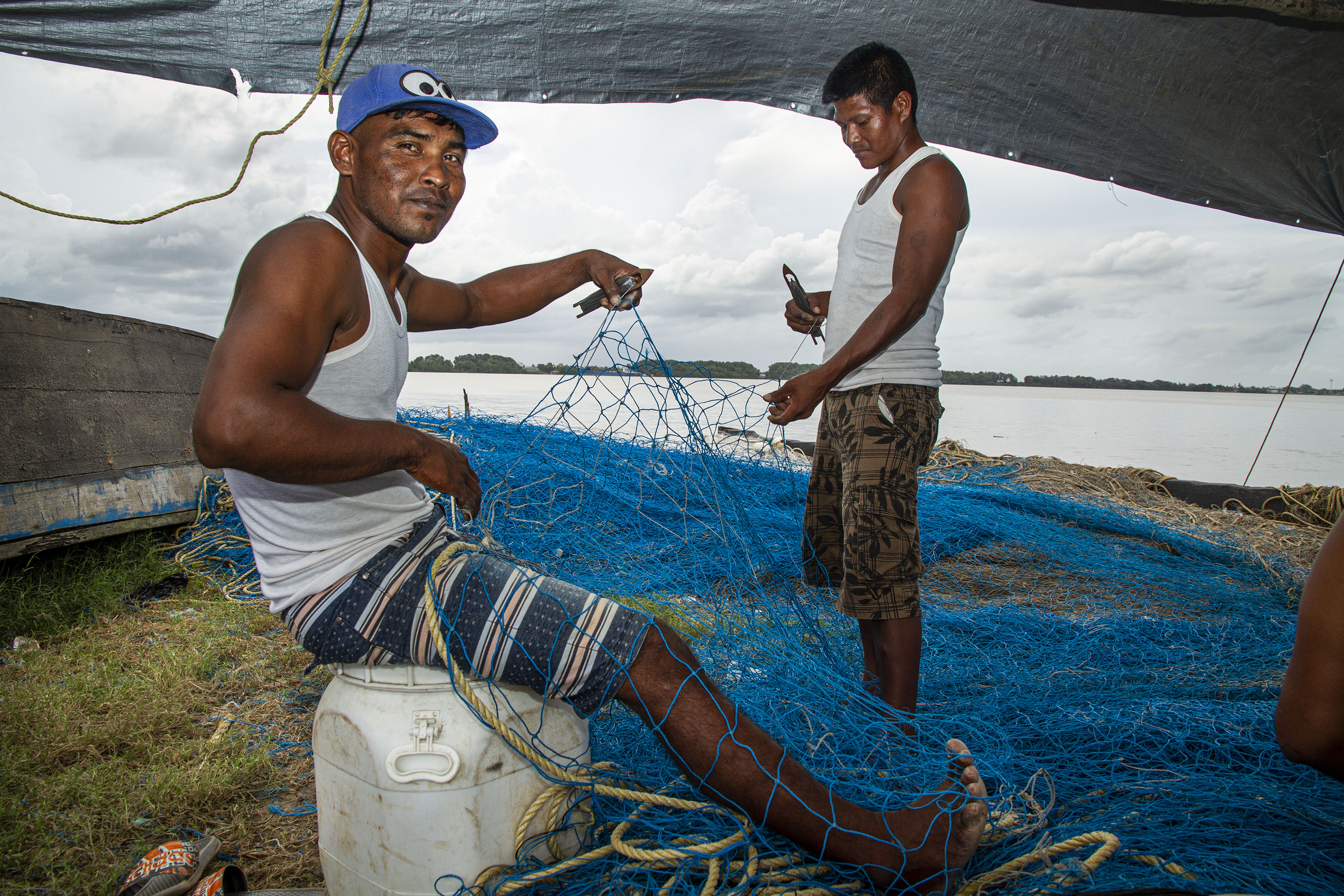
32 fishermen families live in Diamond River Dam, a slum area in the suburbs of the city, just along the shores of Demerara River

Climate change, floods and rising water levels are problematic for the families living in Diamond River Dam
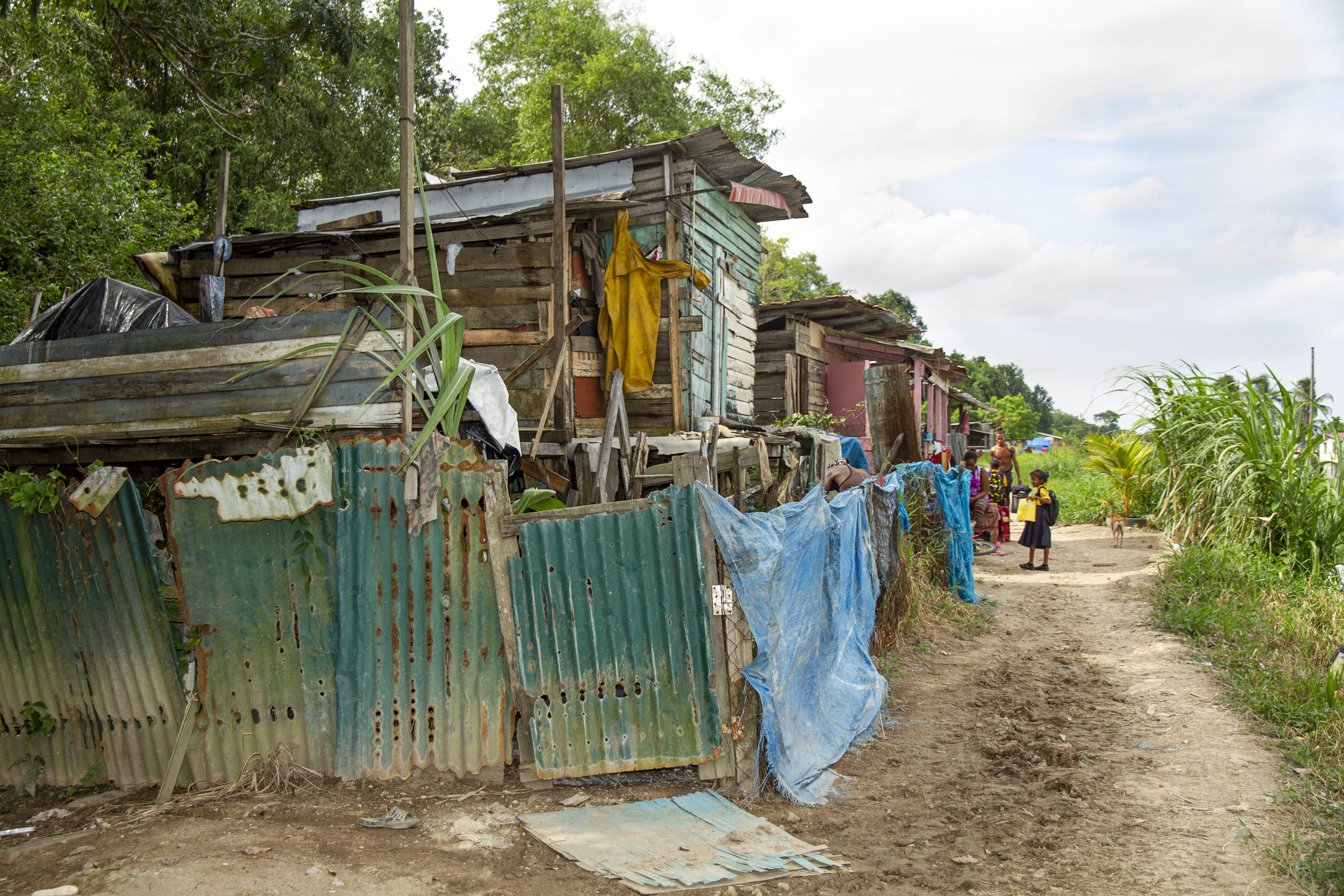
The squatters built their houses right next to the riverbanks
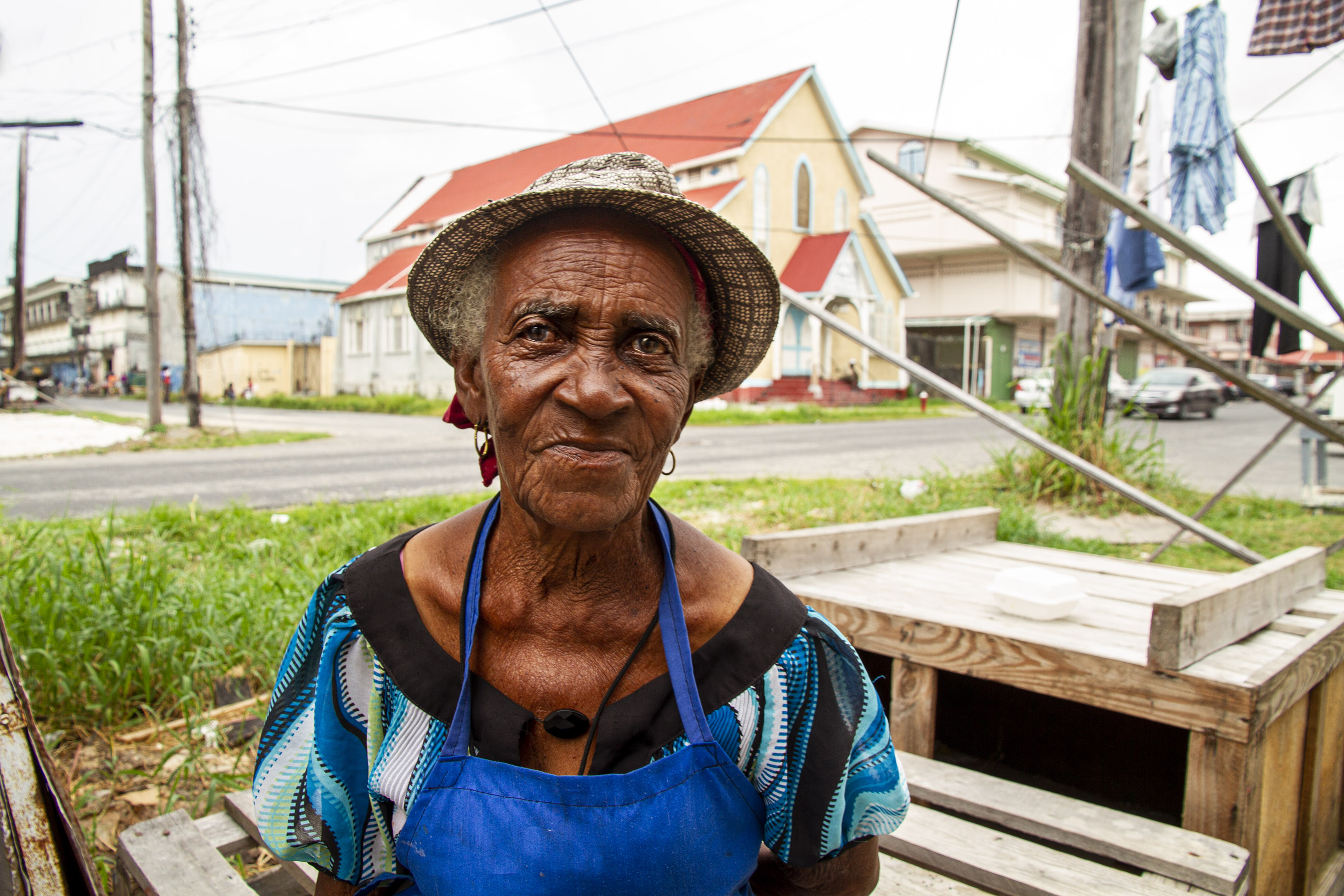
Irma Kerr, 84, lived her entire live in Tiger Bay, one of the several city slums in Georgetown
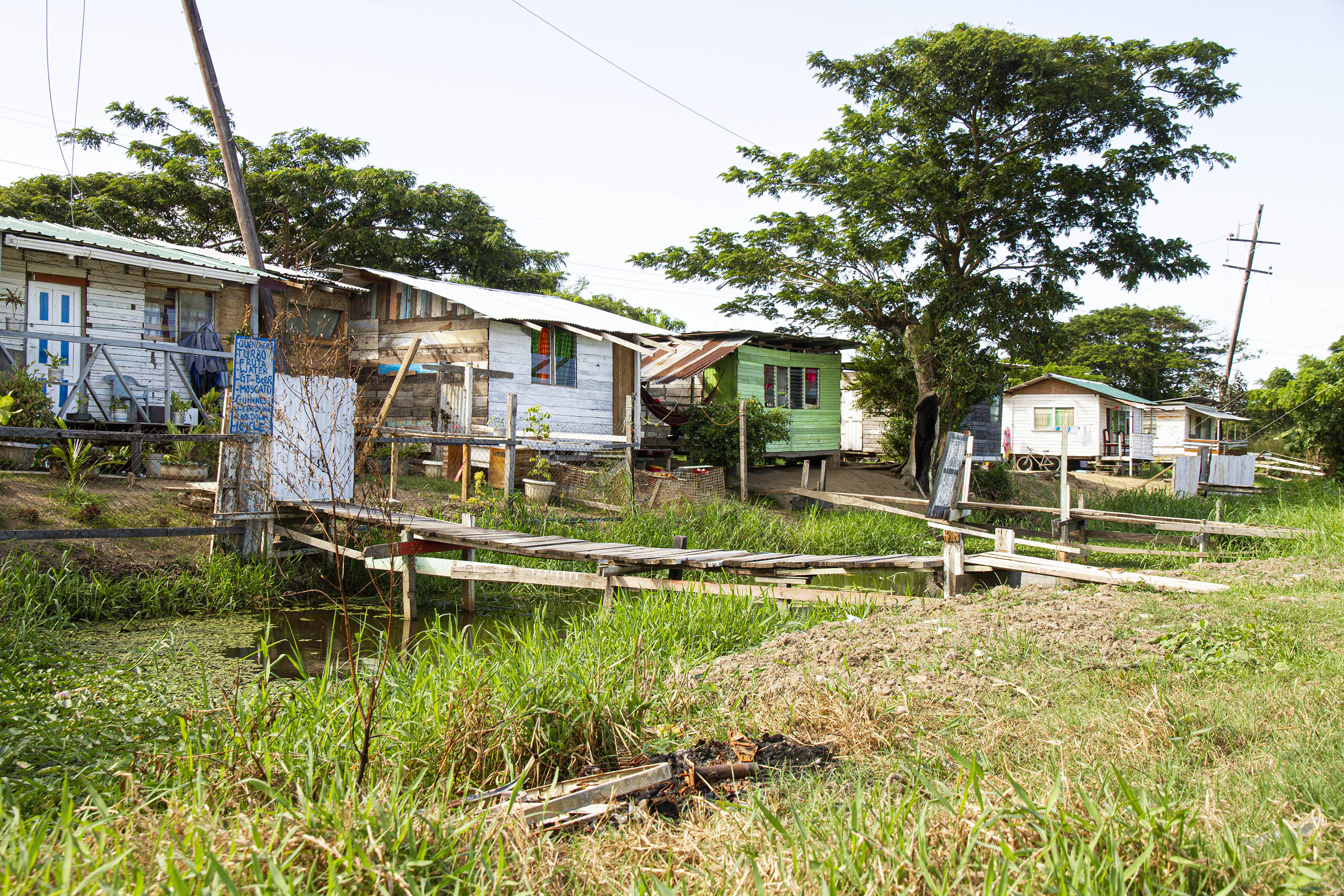
The informal settlement of Sophia, former sugar cane plantations in Georgetown. While the majority of its settlers lives in upgraded houses already, some squatters still settle illegally along the numerous water channels
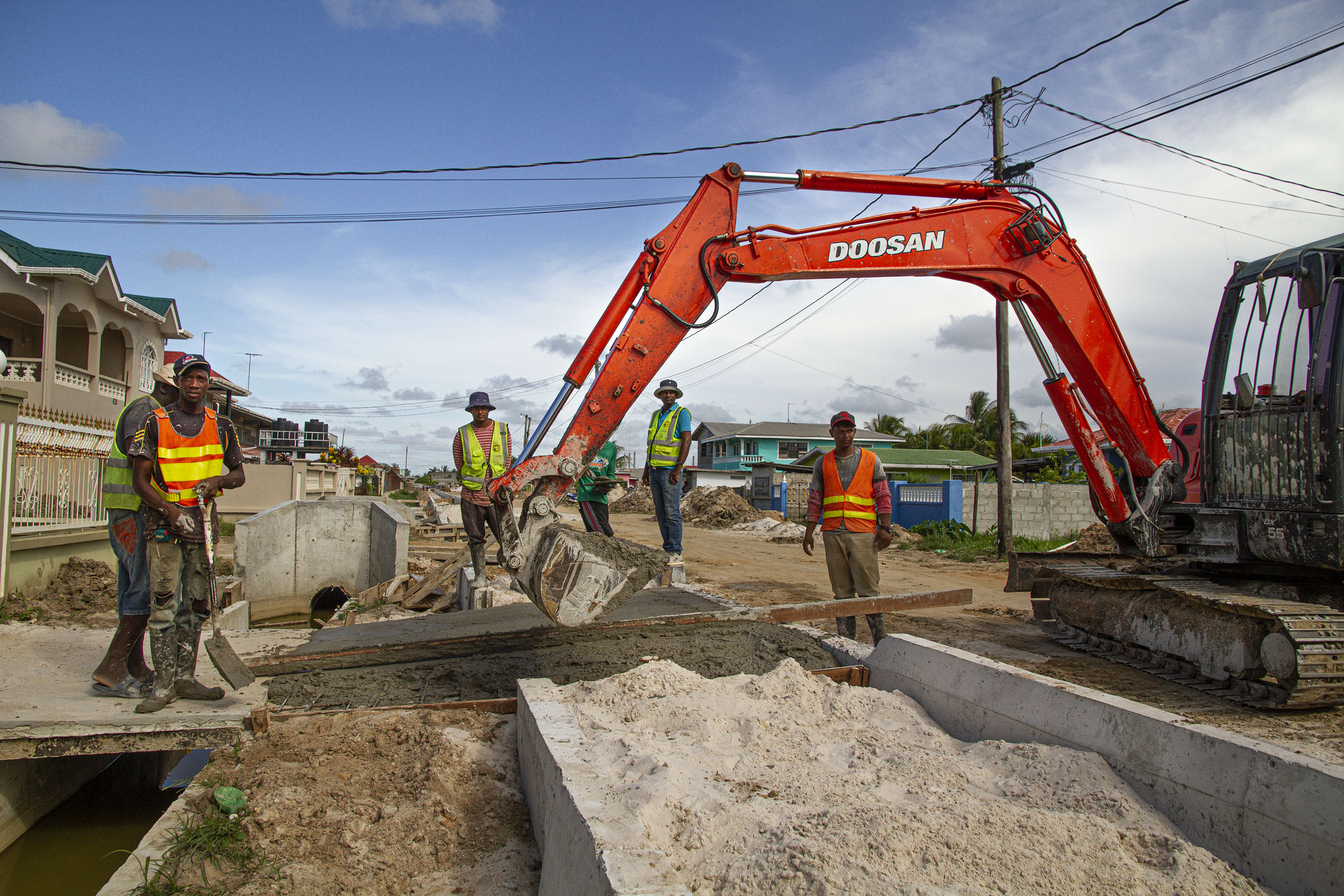
In Sophia, the Guyanese government started upgrading the settlement, building roads, drainages, streetlighting and bridges
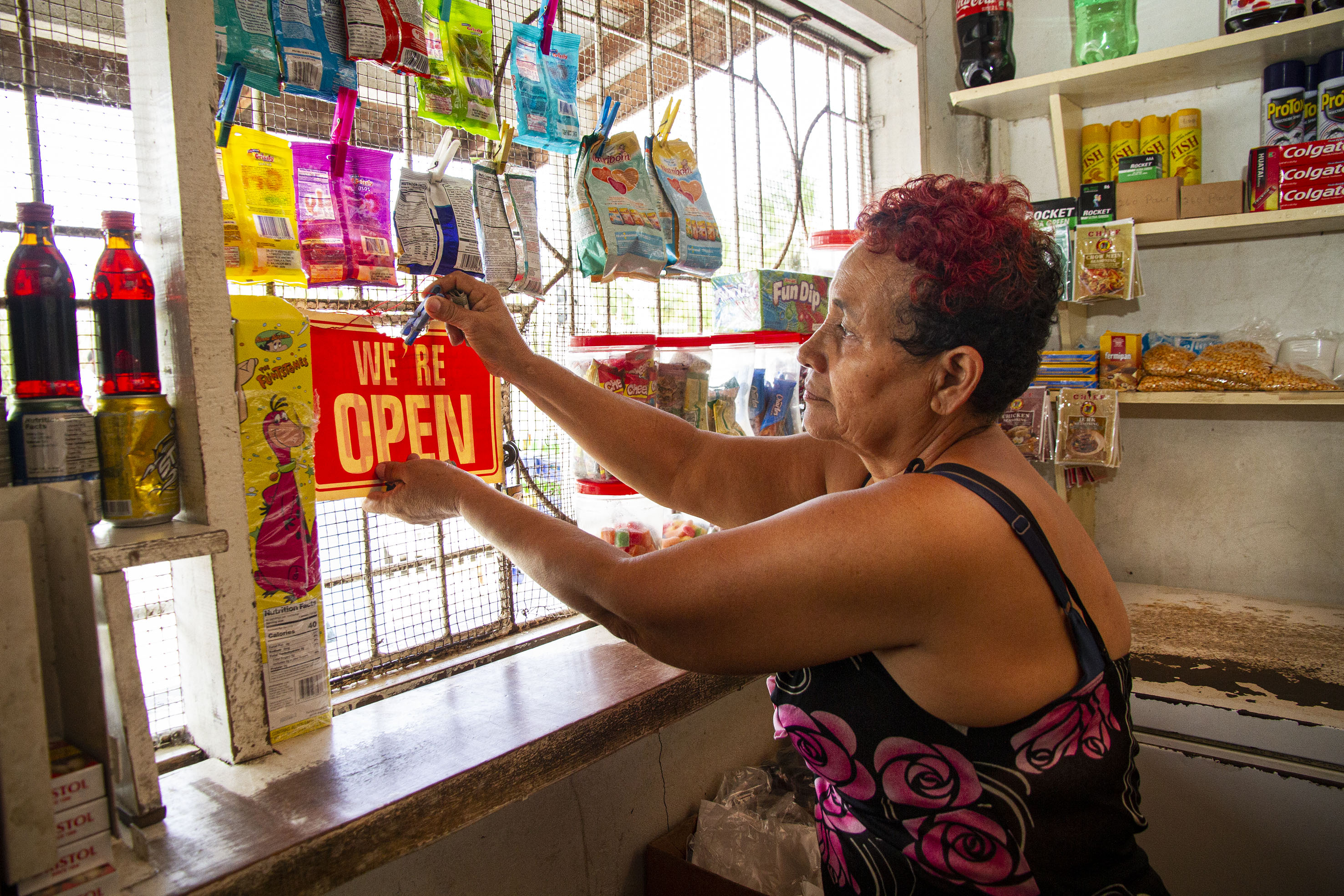
Sylvie Gustave, 58, spent her entire life in Sophia. She runs a store in the settlement

More than 20 000 settlers live in Sophia
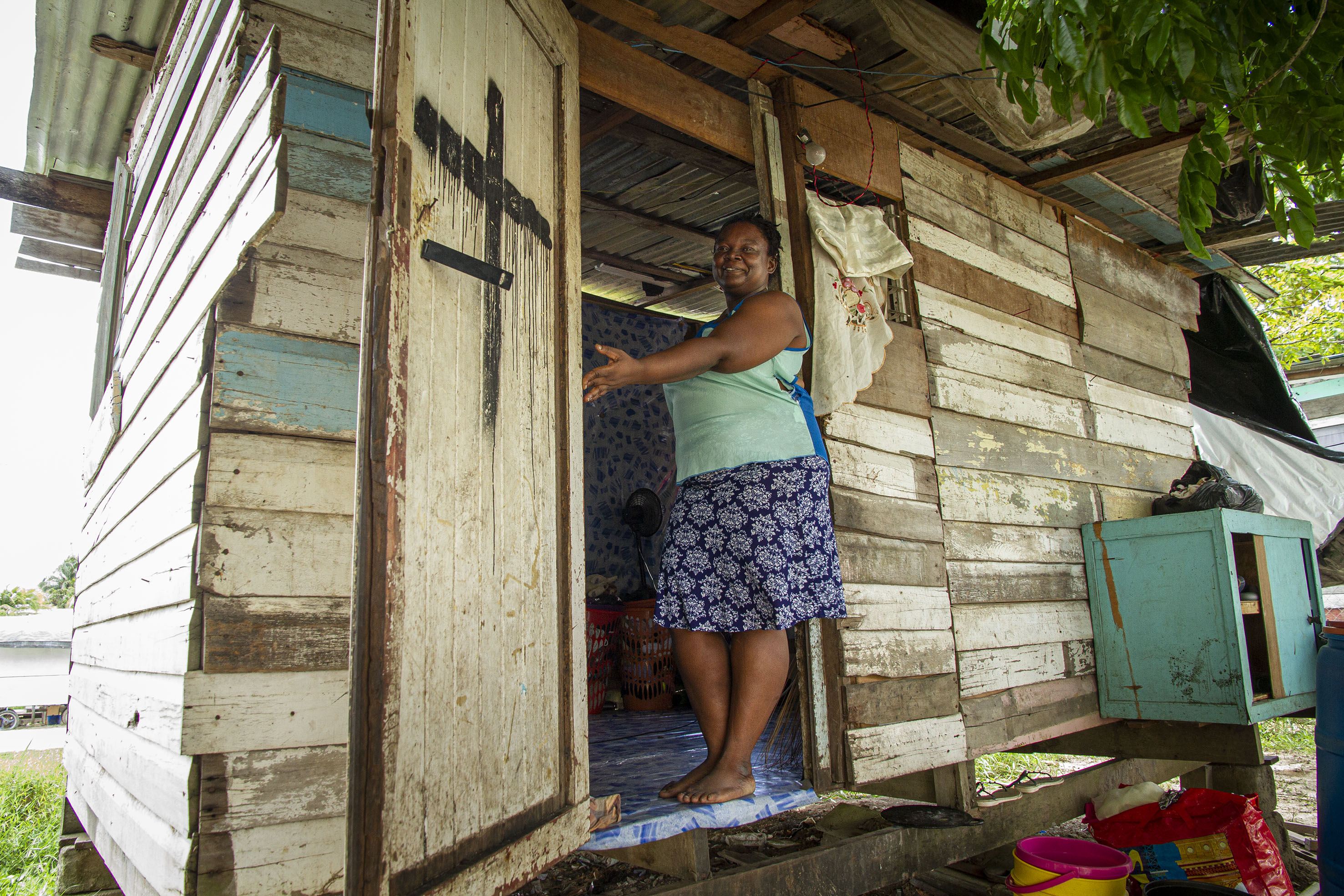
Samantha Edinboro, 41, belongs to the squatters who built their wooden huts along the canals
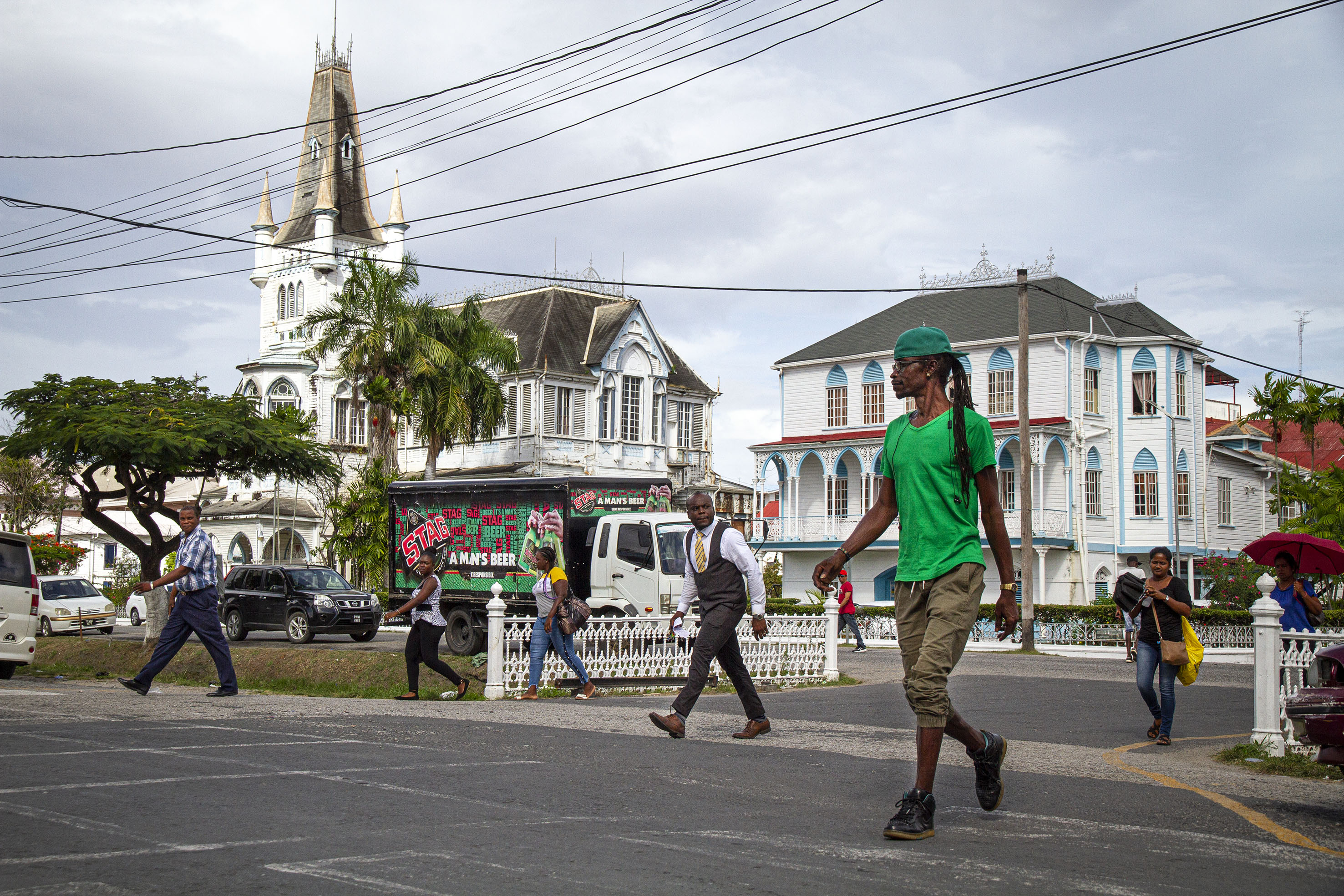
Town hall of Georgetown in the city centre
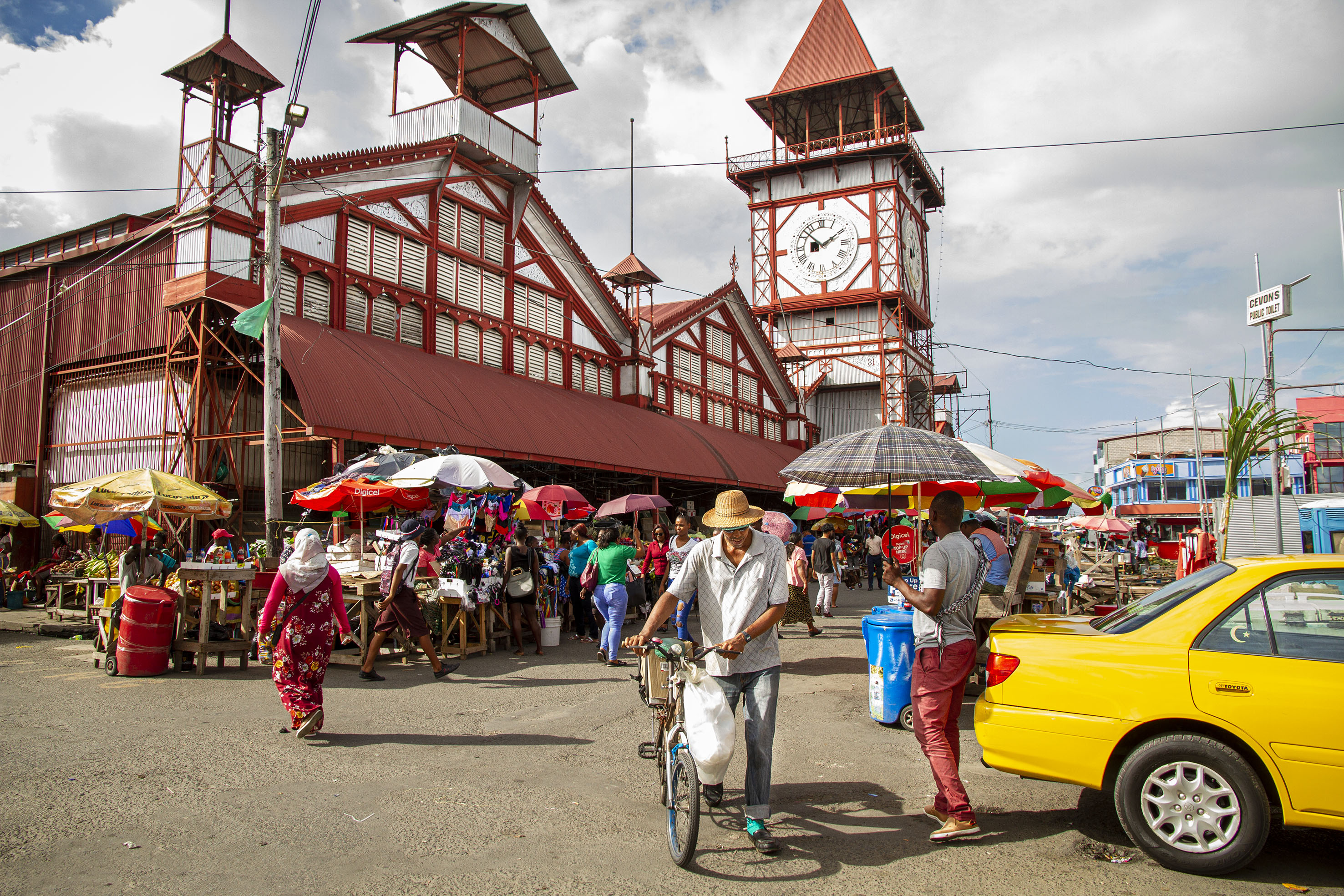
Stabroek Bazaar, one of the busy market areas in the city centre of Georgetown
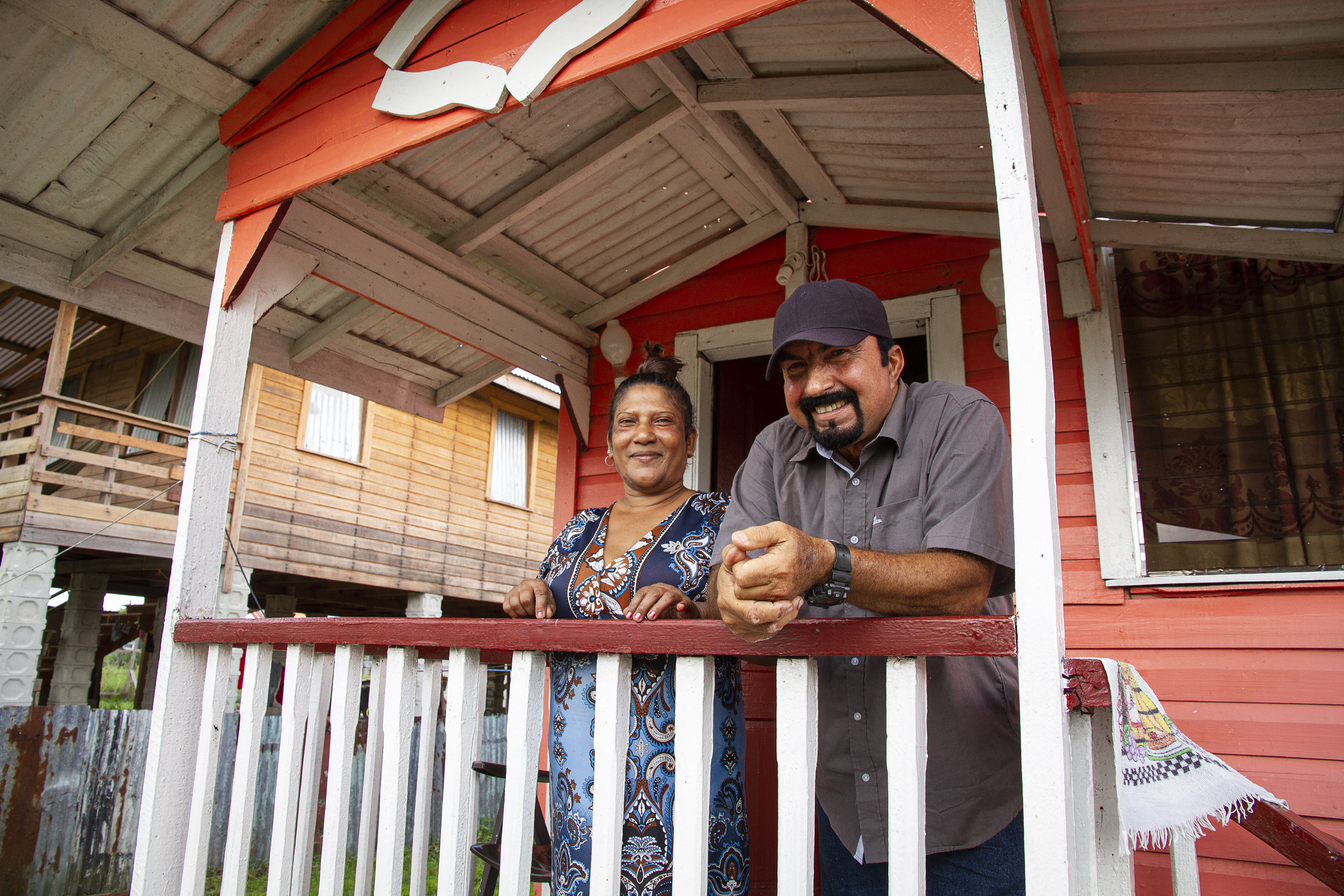
Kaloutie Siiran, 54 and her husband Wayne Plant, 63 live in Westminster settlement in the suburbs of Georgetown. The couple belongs to 60 families, who were relocated from a city slum by the Guyanese government in 2010 to 2013
Tiffany has already visited the Prospect Housing project several times together with members of the government - from the time she was given the plot to the construction of the shell. She is now seeing the almost finished house for the first time and opens up on her plans. She wants to paint the house yellow and plant lemon and banana trees in the garden, Tiffany says and spreads her arms out inside the shell of her new home. “I can endure a few more weeks in the slum and then a new chapter in my life begins here." And then tears of joy shoot into her eyes. Behind the house she wants to erect a small extension for a hairdresser's shop, she says. Doing hair, that would have earned her a living on Broad Street already. Then she will bring her son to her house, who still lives with the family of her ex-partner, she sobs. “It can only get better.”

